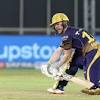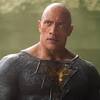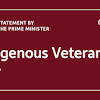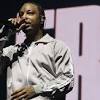No public inquiry into foreign interference: Special rapporteur ...

A public process is required on the issue of foreign interference, special rapporteur David Johnston says, but not in the form of a public inquiry.
Instead, Johnston announced Tuesday that he plans to hold "a series of public hearings with Canadians" to shine more light on the "problem of foreign interference" and inform the public and policymakers on the threat it poses, and ways to address it with urgency.
"Foreign governments are undoubtedly attempting to influence candidates and voters in Canada," Johnston writes in his first report in the role of special rapporteur. "Much has been done already, but considerably more remains to be done to strengthen our capacity to resist foreign interference."
Rather than advise striking a public inquiry and someone else be appointed to lead it, the former governor general intends to do the work himself in the five remaining months of his mandate.
During these hearings Johnston says he plans to speak to and hear from Canadians — particularly those in diaspora communities — as well as current and former government officials, knowledgeable experts, and "other interested parties" about foreign interference and ways to improve Canada's response to it.
"This will be a public process, but not a public inquiry, as I do not need the subpoena powers provided by the Inquiries Act to gather this information and encourage public attention on these matters," Johnston writes.
Johnston was tapped in March by Prime Minister Justin Trudeau to examine whether a public inquiry or other "mechanisms or transparent processes" such as a judicial review were necessary.
This move stemmed from heightened public concerns over alleged election meddling by China during the last two federal campaigns, prompted by reporting largely based on intelligence leaks.
Johnston said his conclusion that a public inquiry is unnecessary was informed by speaking to dozens of high-level federal officials, cabinet ministers and MPs, as well as examining first-hand a "large collection" of documents.
He said a public inquiry at this stage would "not advance the goals of transparency or trust any further than I have taken them, and raise expectations that will ultimately be disappointed."
Johnston's intention with the hearings is not to focus on "who knew what and what did they do about it" because he feels the questions were covered in his initial public report as well as a confidential annex provided to the prime minister, cabinet, and security-cleared opposition party officials.
WHAT CONCLUSIONS DID JOHNSTON REACH?In addition to the question of an inquiry, Johnston's 55-page interim report goes over the issue broadly, including what has been alleged, what he learned from speaking to those involved, the roles Canada's intelligence agencies played, and steps taken to counter and communicate about foreign interference.
In Tuesday's report, Johnston includes four additional initial conclusions:
- More needs to be done to counter the unquestioned attempts by foreign governments to interfere in Canadian affairs;
- When viewed in full context with all relevant intelligence "several leaked materials that raised legitimate questions turn out to have been misconstrued in some media reports";
- There are "serious shortcomings in the way intelligence is communicated and processed from security agencies through to government," but no examples of ministers or the prime minister "knowingly or negligently failing to act" have been identified; and
- His findings should be referred to and reviewed by the National Security and Intelligence Committee of Parliamentarians (NSICOP) and the National Security and Intelligence Review Committee (NSIRA), and both oversight bodies should report publicly if they disagree.
Johnston said, when Trudeau appointed him, his "preliminary view" was that he was "very likely" to recommend a public inquiry.
After considering whether a public inquiry would enhance public trust in Canada' electoral process, Johnston said the sensitive material and information that would "lie at the heart" of whether the federal government did enough to confront the claims of interference, cannot be aired publicly.
While noting the value public inquiries can and have had — pointing to the most recent Public Order Emergency Commission focused on the "Freedom Convoy" — Johnston said, in this case, it would not be able to provide the benefits of a full airing of the facts as others have.
"Instead, I would be handing off a problem to someone else, without solving it, or even providing a process by which the problem could be solved. This would prolong, but not enhance, the process," Johnston said.
Over the last six months, a series of senior federal security officials have testified publicly before parliamentary committees that while attempts were made to meddle, the integrity of Canada's elections were upheld, while expressing the limitations of what they'd be able to say in an open forum.
OPPOSITION STILL WANT INQUIRYNoting the mixed views among Canadians and experts around a public inquiry, Trudeau had vowed that the Liberals would "abide by" Johnston's guidance around whether an inquiry was needed, and respond to any other recommendations. He has yet to comment on the report but is expected to later today.
Deciding against recommending a public inquiry, and further, deciding to take on the public hearings himself — given the heightened politicization surrounding his appointment — was quickly met with considerable ire from the opposition parties who have ardently been pushing for an independent airing of the facts.
Conservative Leader Pierre Poilievre panned Johnston's findings, and said he doesn't trust Johnston to conduct the public hearings.
"He has no business in this job because it is a fake job that he is incapable of doing impartially. None of his recommendations can be taken seriously because he's in a conflict of interest," Poilievre said, adding Conservatives will continue to push for a public inquiry, and a foreign influence registry.
NDP Leader Jagmeet Singh said Johnston's decision to not call for a public inquiry was "incredibly disappointing," and said he will continue to push for one.
"We thank Mr. Johnston for his investigation but there are still unanswered questions that could be responsibly addressed by a public inquiry," Singh said. "While public meetings can be useful, the powers of a public inquiry are more rigorous… We firmly believe Canadians would benefit from a fulsome, public investigation that maintains the integrity of our intelligence that must be kept confidential."
Johnston's appointment has been controversial from the outset, with opposition parties questioning the former debates commissioner's impartiality and potential conflict of interest given his long-standing close connection to the Trudeau family and his past membership status with the Pierre Elliott Trudeau Foundation that's faced scrutiny over a China-linked donation.
Addressing these concerns head-on on Tuesday, Johnston sought to clarify the "basic facts" about their relationship and the extent they've been in contact since Trudeau took office, as well as his involvement with the Trudeau Foundation.
He noted he's been appointed to dozens of public leadership positions on boards and such over the years, by politicians across the political spectrum, noting that the current fervour around his role if it continues, may have a chilling effect on other publicly-minded individuals from stepping into similar positions in the future.
"I've been fortunate in my public life to have served as chair of, or a member of an advisory committee, or task forces, on probably two to three dozen different occasions over the years… and in none of those previous occasions has my impartiality or integrity ever been questioned. This is the first time it has happened. And let me simply say that's very troubling for me, because this kind of baseless set of accusations diminishes trust in our public institutions," Johnston said.
Tuesday's report from Johnston was not meant to be the end of his work on the file. He was already mandated to spend the months ahead continuing to take a more all-encompassing look at the issue of foreign interference and the integrity of Canada's democracy and report on his further findings.
Johnston said he hopes to begin the hearings "at the earliest possible date" and plans to issue a second report based on what he hears during the hearings and will remain available to "examine any additional allegations raised that fall within my terms of reference" up until Oct. 31, 2023.
Can't see the embedded Special Rapporteur report above? Click here


 Canada
Canada Argentina
Argentina  Australia
Australia  Austria
Austria  Brazil
Brazil  Chile
Chile  Czechia
Czechia  France
France  Germany
Germany  Greece
Greece  Italy
Italy  Mexico
Mexico  New Zealand
New Zealand  Nigeria
Nigeria  Norway
Norway  Poland
Poland  Portugal
Portugal  Sweden
Sweden  Switzerland
Switzerland  United Kingdom
United Kingdom  United States
United States 































